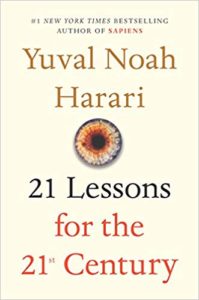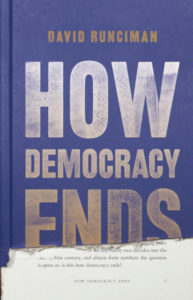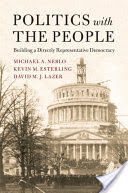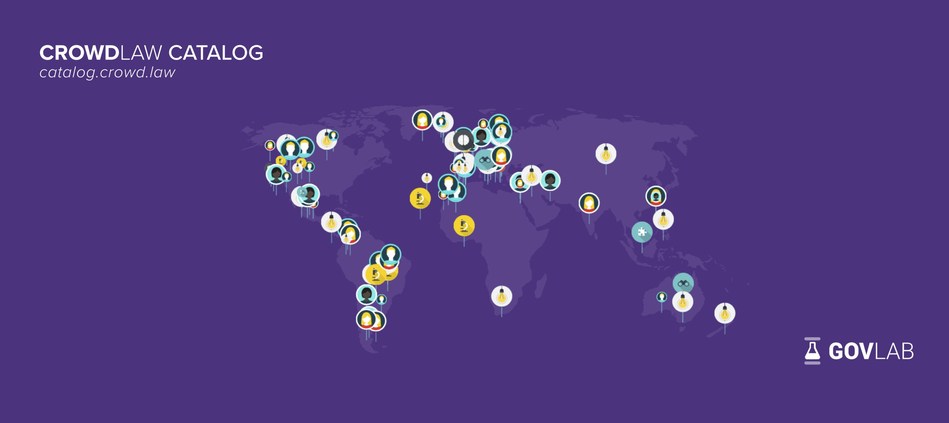As the United Nations celebrates the International Day of Democracy on September 15 under the rubric of “Democracy Under Strain,” New York University’s Governance Lab unveils its CrowdLaw Manifesto to strengthen public participation in lawmaking.
“This manifesto shares what we see as the future of governing, which moves beyond viewing public opinion and petitions as the main form of civic engagement,” said GovLab director Beth Simone Noveck, professor in the Department of Technology, Culture and Society at NYU Tandon,
“Technology enables us to collectively ask and answer how we should redesign our governing practices to solve the complex policy challenges of the 21st century at local, national, and global levels. We ask citizens throughout the world to join us as signatories to this manifesto and thereby encourage democracy to put down strong roots in communities everywhere.”
 When you look at the 20th century and the struggle between democracies and dictatorships, we tend to think about the struggle in terms of different ethical ideas. But it was also a struggle between different systems for processing information and making decisions, argues Yuval Noah Harari, author of Sapiens and 21 Lessons for the 21st Century, Democracy is a system that distributes information and power between many individuals and institutions. Dictatorship works by concentrating all the information, decisions, and power in one place. Given the technological realities of the 20th century, dictatorships were simply less efficient, he tells National Geographic.
When you look at the 20th century and the struggle between democracies and dictatorships, we tend to think about the struggle in terms of different ethical ideas. But it was also a struggle between different systems for processing information and making decisions, argues Yuval Noah Harari, author of Sapiens and 21 Lessons for the 21st Century, Democracy is a system that distributes information and power between many individuals and institutions. Dictatorship works by concentrating all the information, decisions, and power in one place. Given the technological realities of the 20th century, dictatorships were simply less efficient, he tells National Geographic.
But some people have this overly optimistic view that there is some law of nature that says that under all conditions and circumstances distributed systems work better than centralized systems; therefore democracy will always be more efficient than dictatorship and will always defeat it. But this is unwarranted. When you look at history, the development of technology and economics and politics, what you see is a pendulum that swings back and forth. Sometimes distributed systems have an advantage and sometimes centralized systems have an advantage.
 The digital revolution has been simultaneously good and bad for democracy, and Facebook is no exception, says David Runciman, author of How Democracy Ends. The good is in the breadth and the openness of the network. The bad is in the secrecy and opacity of the way the network is run, he tells The Economist.
The digital revolution has been simultaneously good and bad for democracy, and Facebook is no exception, says David Runciman, author of How Democracy Ends. The good is in the breadth and the openness of the network. The bad is in the secrecy and opacity of the way the network is run, he tells The Economist.
Others advocate mobilizing democracy by creating change through digital engagement (see above).
Carefully designed online platforms can more effectively embed elections in ongoing conversations about public policy and the future of the republic, say analysts Michael A. Neblo, Kevin M. Esterling, and David M. J. Lazer.
 In our new book, “Politics With the People,” we show how to build new communication channels between elected officials and constituents. This helps representative democracy become more than just a Darwinian electoral struggle, they write for The Washington Post. Building a representative democracy that informs and engages citizens between elections can make us more confident that majorities form in a way becoming of the power we afford them.
In our new book, “Politics With the People,” we show how to build new communication channels between elected officials and constituents. This helps representative democracy become more than just a Darwinian electoral struggle, they write for The Washington Post. Building a representative democracy that informs and engages citizens between elections can make us more confident that majorities form in a way becoming of the power we afford them.
Can Mark Zuckerberg fix Facebook before it breaks democracy, The New Yorker’s Evan Osnos asks:
In 1915, Louis Brandeis, the reformer and future Supreme Court Justice, testified before a congressional committee about the dangers of corporations large enough that they could achieve a level of near-sovereignty “so powerful that the ordinary social and industrial forces existing are insufficient to cope with it.” He called this the “curse of bigness.” Tim Wu, a Columbia law-school professor and the author of a forthcoming book inspired by Brandeis’s phrase, told me, “Today, no sector exemplifies more clearly the threat of bigness to democracy than Big Tech.” He added, “When a concentrated private power has such control over what we see and hear, it has a power that rivals or exceeds that of elected government.”

One year after NYU Tandon’s Governance Lab convened thought leaders at The Rockefeller Foundation Bellagio Center in Italy to lay the foundation for CrowdLaw, more than 100 government and citizen groups have already implemented its practices to improve governance through 21st century technology and tools. (PRNewsfoto/NYU Tandon School of Engineering)







